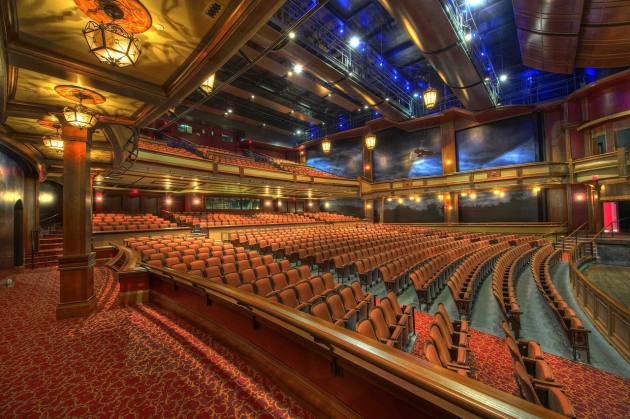The Rewards and Limitations of Purchasing a Historical Commercial Property

Have you ever looked at a commercial building in your community and wondered what it was in the past?
Investing in history can pay off, and though it might be tricky to navigate, opting for these buildings of yesteryear can be a rewarding experience despite the challenges they may bring.
Challenges of Purchasing a Historical Property
Unfortunately, owning a piece of history is not always easy. Historical properties often come with challenges, whether they're homes or commercial buildings.
Before you secure a property, you need to ensure it fits your every need, including a detailed plan on what you want to do with it. Here are some things you need to watch out for when purchasing a commercial property in a historic district.
#1 – Renovations Can Be Costly
If you've ever renovated your personal property, you know it comes with quite a price tag. In 2021, the median spending on home renovations was $18,000, which can be difficult to grapple with if you're an investor looking for a deal that'll offer a huge ROI in the future.
Not to mention, the renovations you want to make may take longer than you anticipate. You may not be able to change the exterior much, as each little change might need a permit or review.
Historical preservation means avoiding renovations that may completely change the appearance of the building—and you might get a tax credit for restoring things to brand-new appearance. Check local laws and regulations before you proceed.
#2 – Regulations May Prevent Your Vision
In a historic community, the preservation of important buildings is vital. Regulations may determine what you can and cannot do with certain structures, meaning you may be unable to renovate them to the potential you want.
Think of it like a homeowner's association—it might even be stricter, depending on the area's rules.
You must be willing to work with what's allowed in the area. Major renovations may not be possible, and you'll have to make do with what you have.
That's why finding a building with the greatest possible return on investment is crucial—you'll likely not be able to change much about its structure.
Evaluate the floor plans before you make a final decision, as there's no guarantee you'll be able to, say, add another bathroom or change the layout.
#3 – Unknown Return on Investment
While historic homes statistically have a greater ROI, there's no way to determine whether that would be correct in your area without much research.
The individual building you choose could have a less-than-desirable layout, dropping its price point if you eventually decide to sell. If that's the case, you may not want to invest your money into renovations if you don't get anything out of the deal.
Historic homes have about 26% higher ROI than newer homes. Still, you must consider how much will go into a property to make it worthwhile. You must also consider the area, as some cities or towns might not have as much ROI on real estate as others.
In some cases, a building might not be worth it. You just need to research sales in the area to see if a piece of property you're looking at is worth investing in.
#4 – May Require Authentic Materials
To preserve the quality of the historical building, the local government may require renovations only to be made with materials that are authentic to the building's original state. That way, certain materials do not mix.
It can maintain the aesthetic of a historic place but might require more work to complete repairs. If the material is hard to find, costly and time-consuming maintenance may be the norm.
Benefits of Buying a Historical Property
Luckily, there are grand benefits to owning a historic property. In addition to preserving history in the flesh, your building has charm that will draw people in. In fact, a business that rents the space from you might see an uptick in sales just because of the draw of the building.
While it could be a long and bumpy road to getting the property where you want it to be, it is possible. You may need to sacrifice part of your vision to make it happen, but historical buildings are ultimately some of the most eye-catching pieces of architecture.
You'll be investing in a community and showing people the past does matter. Here are some other benefits you'll reap from investing in history.
#1 – Better for the Environment
Restoration of an older building is always better than tearing it down and building anew. Many people might have an emotional attachment to a commercial building. Even if you are not from the area, you should respect its history and what the building used to be.
Try restoring the old facility instead of demolishing it and using it for something else. It will cut down on the waste of any of your projects.
Additionally, you should aim to salvage what you can. Working with the leftovers can be difficult—for example, a fire raging through a home could damage its structural integrity, even leaving water damage from burst pipes in its wake.
If left untreated, this water can lead to mold growth, inhibiting people's health. However, fire damage restoration can help solve these issues, and it's better than rebuilding from the ground up.
#2 – Offers a Unique Experience
When you purchase a historic home or other old building, you hold a unique piece of that city's history. The building might have passed through several hands and been various businesses, but now, it's all yours.
Investing in structures is always better when you have something that breaks the mold and is not cookie-cutter. It's a fun way to diversify your portfolio while investing in a community that could use the boost.
#3 – Builds an Energy-Efficient Future
As you renovate a historical building, you learn more about its inner workings and make upgrades where possible. Preserving the past is important, but so is making way for the future.
For example, you may want to make more energy-efficient upgrades to increase your ROI while benefitting the environment.
Forty percent of a person's carbon footprint relies on their electricity use. Opting for a more energy-efficient facility might be as simple as swapping out fluorescent light bulbs for LED ones, or going as far as adding solar panels to the roof or somewhere on the property.
Figure out what fits it best. Ultimately, it will be a massive benefit to you, the community, and the environment.
#4 – Provides Jobs for the Area
If you plan on restoring the building to its former glory, local workers will be able to take part in a project that brings the city pride.
You will also be able to have a fully restored building with as many historically accurate elements as possible. It is a great way to bring jobs to the area and increase the value of the historic structures.
Do Your Research Before You Buy
The best thing you can do to prepare yourself for acquiring a historic property is to research the area. Learn of any regulations that would prevent you from completing any renovation you deem necessary.
Research what other historical properties went for after renovations. Obtaining all the knowledge you can will help you make a more informed decision and be happier with the overall outcome.
Find & Connect With Commercial Agents & Brokers Near You for Free on MyEListing.com
MyEListing.com maintains one of the largest national databases of commercial agents and brokers in the country. Use it for free to find an agent or broker near you.
Article Search
Share
All Article Categories









